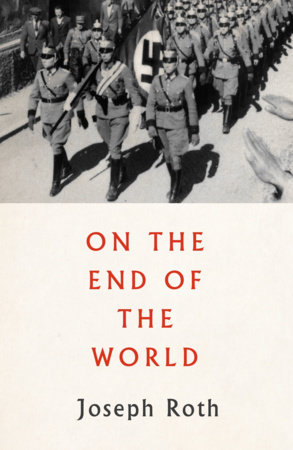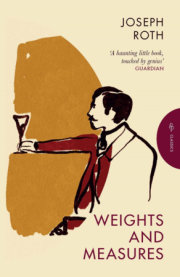The Dream of a Carnival Night
I deny the reality of the significant event which marked
Germany so solemnly this week: I deny the reality of Hitler’s
trial.
Such events should be restored to the domain of metaphysics,
something quite at home in Munich. The point in the year
when this purportedly genuine trial unfolds is most fitting from
my point of view. In the midst of the carnival a court assembles,
it bows respectfully to the accused, to those who are blowing
kisses to women in the courtroom; here justice has migrated
into the barracks, here it’s the accused who are doing the
accusing, barbed hedgehog barriers mount a menacing guard
before the entrance of the garrison court, sixty well-sharpened
pencils on a mission to inform the public are poised and it is
forbidden for the poor hawkers to sell braces anywhere near the
public gallery. It is necessary to be blind or, what amounts to the
same, to be a member of the guileless German public, in order
not to notice the coexisting phenomena on show here, to not
notice that this is no ‘political trial’ taking place here in Munich,
but the dream of a carnival night.
Consequently, I remove any traces of dignity from the event
this week and cast it from the elevated regions of the lofty editorial,
into the nether world at ‘street level’. It is not political life
on show here, but spiritual decadence. This is no audience, but
a spirit seance. It has taken a wrong turn and descended from
the faculty of the professor of the Occult, Schrenck-Notzing,2
into the ministry of Emminger.3 I don’t allow myself to be
misled.
I don’t allow myself to be misled – concerning the equally
solemn, impartial and affecting tone with which the newspapers
report this trial. For, can you not hear, my brothers, that it is the
dead who are speaking? Do you not see that the court reporters
are scribbling down the speeches of ghosts? Have you not
noticed in the sketches of those ‘sketch makers delegated to
attend the court proceedings’, that they are drawing the deceased?
The tombs of world history are yawning open in Munich and all
the corpses one thought interred are stepping out. A grotesque
dream is forming – and all Germany accepts this miracle with
indifference, as if it was self-evident.
An upholsterer appeared and presented himself as a ‘writer’,
and everyone believes it. A cobbler whose gaze is now lifted
above a shoe recounts his trifling biography and waxes lyrical on
how this ‘citizen of the world’, which he still was in Braunau,4
only became an ‘anti-Semite’ in Vienna. And the German newspapers
print that with relish. Then, in his special car, a general
by the name of Lindström5 arrives, a man whose name is already
engraved in the mortuary register of history, and proceeds to
deliver a speech against the Pope. It had to be that particular
general who in the course of his life has read nothing save a
manual of military science – and even then, without benefitting
from it. From the afterlife of the true banished books suddenly
looms one lieutenant Röhm,6 and he says, ‘I beg you to consider
that I am an officer and can think only in those terms. At the
front I was an officer of the general staff and I belong to that
handful of those who “firmly believed that we were still going to
be victorious”.’ A record of imbecility, even at the heart of the
general staff! Think on, brothers, how long it has been since
anyone has even given the merest thought to victory, should we
not have reasoned that such men were a long time dead and
buried? No, you see, they still live! They prophesy. They want to
start a revolution! Oh, what a dance of death!
It seems to me that German history of the present and recent
past, excretes some preservative substance with which it embalms
its dead so efficiently that they can be brought back to life at
carnival time and are thus able to exhibit in Munich their
conception of the world. Such ceremonies should remain the
private business of a closed circle devoted to the conjuring of
spirits and not be mixed up with politics and the public at large.
But things being what they are and because sixty court reporters
take down the words of the dead, I must presume that I dreamt
the article that I am writing here and its justification; that
I dreamt Germany altogether; her illiterate upholsterer,
my colleague who, barely has he learned to read and write in
a racist alphabet book, immediately becomes a writer and political
personality; her general who, instead of enrolling in the
Vatican’s Swiss guard, which would have sufficed, fields a
cam paign against the Pope; this rattling of rusty sabres, this
ghoulish phosphorescence of the living dead; these journalists
who morph into comedic gossip-sheet writers when they get to
report the Munich trial.
That’s right: I dream, and this dream of a carnival night is
called Germany.
– Vorwärts, 2nd March 1924
Copyright © 2019 by Joseph Roth. All rights reserved. No part of this excerpt may be reproduced or reprinted without permission in writing from the publisher.






